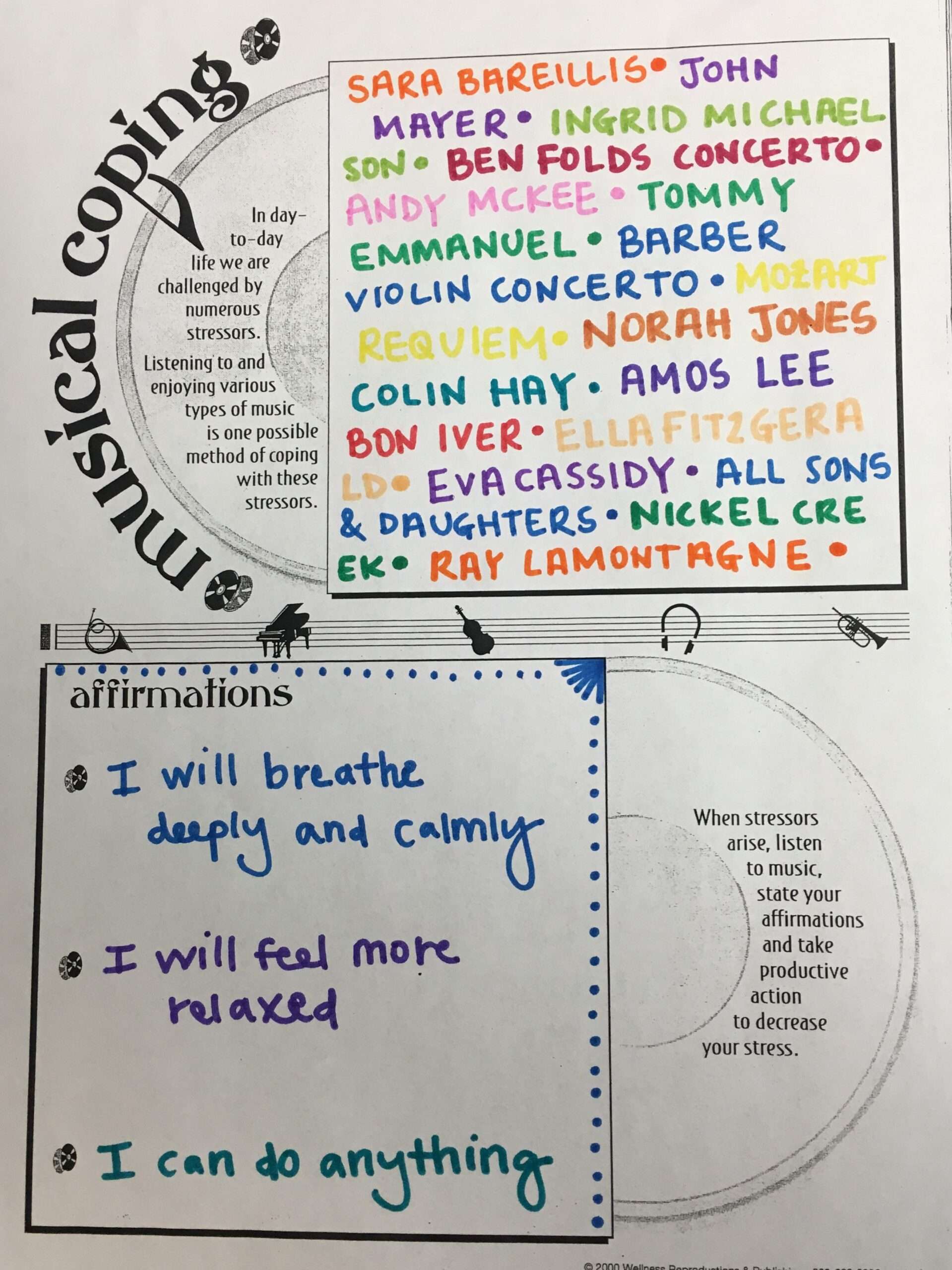What is stress?
Stress is a normal human reaction that happens to everyone. In fact, the human body is designed to experience stress and react to it. When you experience changes or challenges (stressors), your body produces physical and mental responses. That’s stress.
Stress responses help your body adjust to new situations. Stress can be positive, keeping us alert, motivated and ready to avoid danger. For example, if you have an important test coming up, a stress response might help your body work harder and stay awake longer. But stress becomes a problem when stressors continue without relief or periods of relaxation.
What happens to the body during stress?
The body’s autonomic nervous system controls your heart rate, breathing, vision changes and more. Its built-in stress response, the “fight-or-flight response,” helps the body face stressful situations.
When a person has long-term (chronic) stress, continued activation of the stress response causes wear and tear on the body. Physical, emotional and behavioral symptoms develop.
Physical symptoms of stress include:
- Aches and pains.
- Chest pain or a feeling like your heart is racing.
- Exhaustion or trouble sleeping.
- Headaches, dizziness or shaking.
- High blood pressure.
- Muscle tension or jaw clenching.
- Stomach or digestive problems.
- Trouble having sex.
- Weak immune system.
Stress can lead to emotional and mental symptoms like:
- Anxiety or irritability.
- Depression.
- Panic attacks.
- Sadness.
Often, people with chronic stress try to manage it with unhealthy behaviors, including:
- Drinking alcohol too much or too often.
- Gambling.
- Overeating or developing an eating disorder.
- Participating compulsively in sex, shopping or internet browsing.
- Smoking.
- Using drugs.
How is stress diagnosed?
Stress is subjective — not measurable with tests. Only the person experiencing it can determine whether it’s present and how severe it feels. A healthcare provider may use questionnaires to understand your stress and how it affects your life.
If you have chronic stress, your healthcare provider can evaluate symptoms that result from stress. For example, high blood pressure can be diagnosed and treated.
What are some strategies for stress relief?
You can’t avoid stress, but you can stop it from becoming overwhelming by practicing some daily strategies:
- Exercise when you feel symptoms of stress coming on. Even a short walk can boost your mood.
- At the end of each day, take a moment to think about what you’ve accomplished — not what you didn’t get done.
- Set goals for your day, week and month. Narrowing your view will help you feel more in control of the moment and long-term tasks.
- Consider talking to a therapist or your healthcare provider about your worries.
What are some ways to prevent stress?
Many daily strategies can help you keep stress at bay:
- Try relaxation activities, such as meditation, yoga, tai chi, breathing exercises and muscle relaxation. Programs are available online, in smartphone apps, and at many gyms and community centers.
- Take good care of your body each day. Eating right, exercising and getting enough sleep help your body handle stress much better.
- Stay positive and practice gratitude, acknowledging the good parts of your day or life.
- Accept that you can’t control everything. Find ways to let go of worry about situations you cannot change.
- Learn to say “no” to additional responsibilities when you are too busy or stressed.
- Stay connected with people who keep you calm, make you happy, provide emotional support and help you with practical things. A friend, family member or neighbor can become a good listener or share responsibilities so that stress doesn’t become overwhelming.
How long does stress last?
Stress can be a short-term issue or a long-term problem, depending on what changes in your life. Regularly using stress management techniques can help you avoid most physical, emotional and behavioral symptoms of stress.
When should I talk to a doctor about stress?
You should seek medical attention if you feel overwhelmed, if you are using drugs or alcohol to cope, or if you have thoughts about hurting yourself. Your primary care provider can help by offering advice, prescribing medicine or referring you to a therapist.
A note from Cleveland Clinic
It’s natural and normal to be stressed sometimes. But long-term stress can cause physical symptoms, emotional symptoms and unhealthy behaviors. Try relieving and managing stress using a few simple strategies. But if you feel overwhelmed, talk to your doctor.
Stress affects us all. You may notice symptoms of stress when disciplining your kids, during busy times at work, when managing your finances, or when coping with a challenging relationship. Stress is everywhere. And while a little stress is OK — some stress is actually beneficial — too much stress can wear you down and make you sick, both mentally and physically.
The first step to controlling stress is to know the symptoms of stress. But recognizing stress symptoms may be harder than you think. Most of us are so used to being stressed, we often don’t know we are stressed until we are at the breaking point.
What Is Stress?
Stress is the body’s reaction to harmful situations — whether they’re real or perceived. When you feel threatened, a chemical reaction occurs in your body that allows you to act in a way to prevent injury. This reaction is known as “fight-or-flight” or the stress response. During the stress response, your heart rate increases, breathing quickens, muscles tighten, and blood pressure rises. You’ve gotten ready to act. It is how you protect yourself.
Stress means different things to different people. What causes stress in one person may be of little concern to another. Some people are better able to handle stress than others. And, not all stress is bad. In small doses, stress can help you accomplish tasks and prevent you from getting hurt. For example, stress is what gets you to slam on the brakes to avoid hitting the car in front of you. That’s a good thing.
Our bodies are designed to handle small doses of stress. But, we are not equipped to handle long-term, chronic stress without ill consequences.
What Are the Symptoms of Stress?
Stress can affect all parts of your life, including your emotions, behaviors, thinking ability, and physical health. No part of the body is immune. But, because people handle stress differently, symptoms of stress can vary. Symptoms can be vague and may be the same as those caused by medical conditions. So it is important to discuss them with your doctor. You may have any of the following symptoms of stress.
What is stress?
Stress is the feeling of being under too much mental or emotional pressure.
Pressure turns into stress when you feel unable to cope. People have different ways of reacting to stress, so a situation that feels stressful to one person may be motivating to someone else.
Many of life’s demands can cause stress, particularly work, relationships and money problems. And, when you feel stressed, it can get in the way of sorting out these demands, or can even affect everything you do.
Stress can affect how you feel, think, behave and how your body works. In fact, common signs of stress include sleeping problems, sweating, loss of appetite and difficulty concentrating.
You may feel anxious, irritable or low in self esteem, and you may have racing thoughts, worry constantly or go over things in your head. You may notice that you lose your temper more easily, drink more or act unreasonably.
You may also experience headaches, muscle tension or pain, or dizziness.
Stress causes a surge of hormones in your body. These stress hormones are released to enable you to deal with pressures or threats – the so-called “fight or flight” response.
Once the pressure or threat has passed, your stress hormone levels will usually return to normal. However, if you’re constantly under stress, these hormones will remain in your body, leading to the symptoms of stress.
Managing stress in daily life
Stress is not an illness itself, but it can cause serious illness if it isn’t addressed. It’s important to recognise the symptoms of stress early. Recognising the signs and symptoms of stress will help you figure out ways of coping and save you from adopting unhealthy coping methods, such as drinking or smoking.
There is little you can do to prevent stress, but there are many things you can do to manage stress more effectively, such as learning how to relax, taking regular exercise and adopting good time-management techniques.
Studies have found that mindfulness courses, where participants are taught simple meditations across a series of weeks, can also help to reduce stress and improve mood.
When to see your GP about your stress levels
If you’ve tried self-help techniques and they aren’t working, you should go to see your GP. They may suggest other coping techniques for you to try or recommend some form of counselling or cognitive behavioural therapy.
If your stress is causing serious health problems, such as high blood pressure, you may need to take medication or further tests.
Mental health issues, including stress, anxiety and depression, are the reason for one-in-five visits to a GP.
Recognising your stress triggers
If you’re not sure what’s causing your stress, keep a diary and make a note of stressful episodes for two-to-four weeks. Then review it to spot the triggers.
Things you might want to write down include:
- the date, time and place of a stressful episode
- what you were doing
- who you were with
- how you felt emotionally
- what you were thinking
- what you started doing
- how you felt physically
- a stress rating (0-10 where 10 is the most stressed you could ever feel)
You can use the diary to:
- work out what triggers your stress
- work out how you operate under pressure
- develop better coping mechanisms
Doctors sometimes recommend keeping a stress diary to help them diagnose stress.
Take action to tackle stress
There’s no quick-fix cure for stress, and no single method will work for everyone. However, there are simple things you can do to change the common life problems that can cause stress or make stress a problem. These include relaxation techniques, exercise and talking the issues through.
Breathing and relaxation exercises
Many people find exercises that focus on breathing and muscle relaxation to be helpful in relieving stress. The playlist below will help you to understand how stress works and start feeling better. These exercises can be done anywhere and are designed to help you feel more relaxed in general, as well as helping you feel calmer if you are becoming stressed.
This playlist is free to download, and you can also stream it using the Soundcloud website or app. You can download and listen to individual tracks if there are particular exercises that work best for you. If you’re listening to it for the first time, it’s best to start from the beginning.



